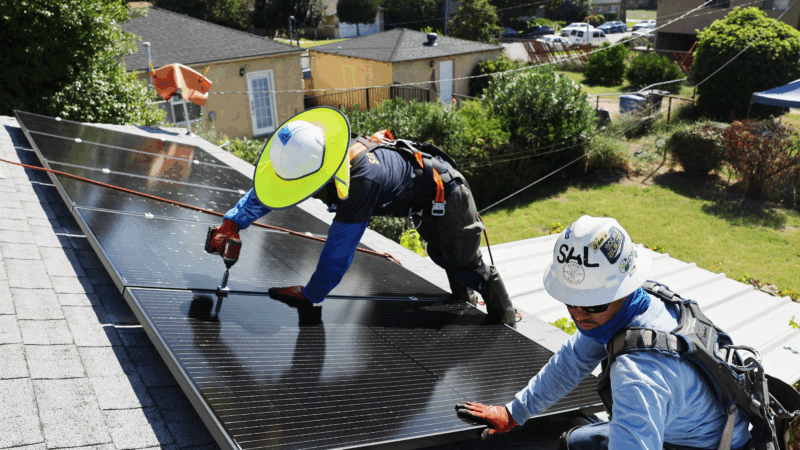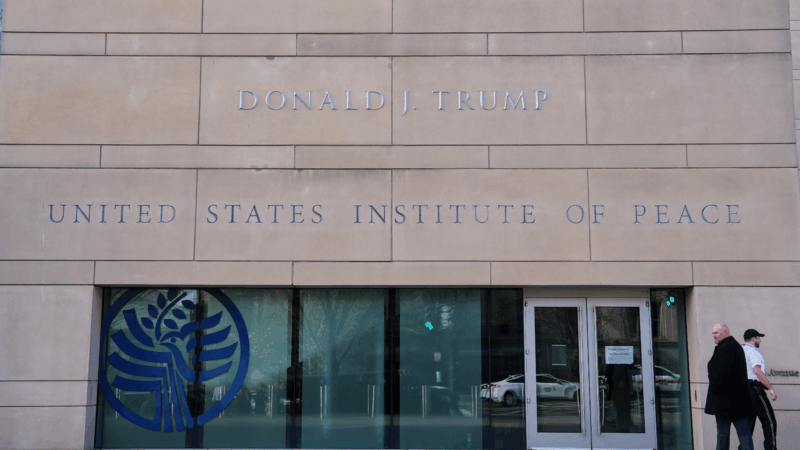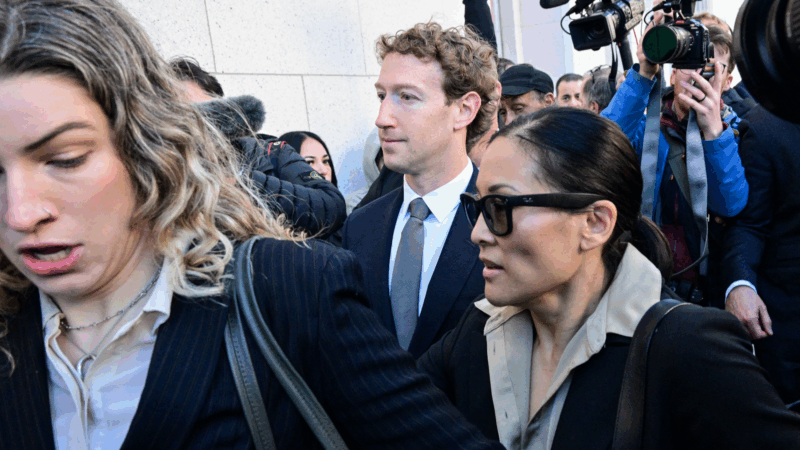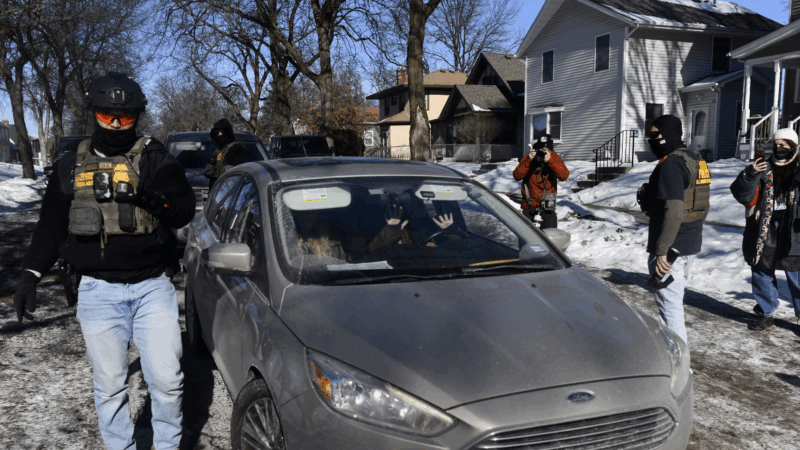EPA plans to end a program that makes solar power available to low-income Americans
The Trump Administration says it will end a $7 billion program to help low-income households and communities get access to affordable solar energy. The move is part of President Trump’s effort to reverse former President Biden’s climate agenda and boost fossil fuels instead.
The “Solar for All” program had aimed to help more than 900,000 low-income households reduce pollution, and utility bills. Solar for All funded efforts around the country to provide rooftop solar panels, community solar farms, and battery storage.
Now, the fate of the program is in question, the Trump administration argues, because of a massive spending and tax bill Republicans passed last month.
Environmental Protection Agency Administrator Lee Zeldin said in a social media post that the new law repeals “the Greenhouse Gas Reduction Fund, including a $7 billion program called Solar for All.” Zeldin did not offer details about how and when the program would be cut back or shut down.
The Solar for All money had already been obligated to state entities like the West Virginia Office of Energy, the Kentucky Energy and Environment Cabinet, and the Michigan Department of Environment. Under the program, the entities then gave grants to lending institutions that fund solar and battery projects, and to installers and project developers themselves. Some funding also went to organizations focused on expanding solar for tribal communities. And some money went through multistate solar programs like GRID Alternatives.
Because the money was considered obligated, grantees argue the Trump administration can’t reclaim it now.
“We and many others are prepared to take them to court,” says Jillian Blanchard, vice president of climate change and environment justice at Lawyers for Good Government, which is working with grantees. Blanchard says the new law “rescinded only a much smaller portion of money — of unobligated funds.”
A key element of the Solar for All program is helping low-income households.
Having solar “means that people can essentially have more money to pay for other essential needs, such as food and healthcare. Both of which are rising in price simultaneously,” says Sanya Carley, professor of energy policy at the University of Pennsylvania.
”By removing this program, a program that was designed specifically to help low and moderate income households, it essentially means that these households won’t be able to benefit from these reduced bills,” Carley says.
A year ago the EPA awarded Colorado’s Solar for All program $156 million. The governor’s office said that would expand access to solar power to more than 20,000 Coloradans.
“The Trump Administration is seeking to rip cost-saving solutions out of the hands of hardworking Coloradans and push us backwards into an over reliance on non-renewable resources,” Democratic Gov. Jared Polis said in a statement.
The EPA under Biden had estimated that the program would produce over $350 million in annual savings on electric bills for low-income households across the country. Also, rooftop and community solar can help households avoid power shutoffs, which are dangerous in extreme heat and cold.
The Solar for All program, and the solar projects across the country, would have meant significant greenhouse gas reductions, says Costa Samaras, director of the Scott Institute for Energy Innovation at Carnegie Mellon University. “We need all the clean power we can get right now,” he says.
Iran and the U.S. lean into gunboat diplomacy as nuclear talks hang in balance
Iran and the United States leaned into gunboat diplomacy Thursday, with Tehran holding drills with Russia and the Americans bringing another aircraft carrier closer to the Mideast.
José María Balcázar becomes Peru’s eighth president in a decade
José María Balcázar has become Peru's new interim president, replacing another interim leader who was removed over corruption allegations just four months into his term.
Trump gathers members of Board of Peace for first meeting, with some U.S. allies wary
President Donald Trump will gather Thursday with representatives from more than two dozen countries that have joined his Board of Peace, for a meeting that will focus on the reconstruction of Gaza.
With a win over Sweden, the U.S. men’s hockey team will play for an Olympic medal
A thrilling overtime goal by defenseman Quinn Hughes puts Team USA through to a semifinal game against Slovakia. On the other side of the bracket, Canada had its own close call, but moves on to face Finland.
Zuckerberg grilled about Meta’s strategy to target ‘teens’ and ‘tweens’
The billionaire tech mogul's testimony was part of a landmark social media addiction trial in Los Angeles. The jury's verdict in the case could shape how some 1,600 other pending cases from families and school districts are resolved.
The Trump administration is increasingly trying to criminalize observing ICE
ICE officers often tell people tracking and watching them that they are breaking federal law in doing so, but legal experts say the vast majority of observers are exercising their constitutional rights.







